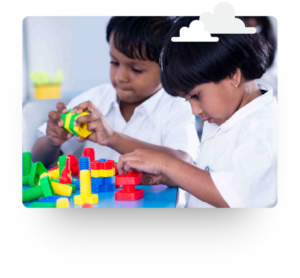16 Feb Is ‘Schooling’ the same as ‘Education’?

In their quest to find the right and affordable school for their children, parents must also ensure that the right kind of education is imparted through that school. Mark Twain once said, “I’ve never let my school interfere with my learning.” Learning is not limited to classrooms. It is a life-long process that engages the mind and makes the heart to believe and moves it to act. It takes place anywhere, anytime through formal and informal settings. As there are various types of learners, it may happen that a school may interfere or even hinder in someone’s learning. As Einstein says, “education is what remains after one has forgotten what one has learned in the school.”
A number of synonyms such as schooling, training, learning used for education, have unique connotations we must be aware of. For example, schooling connotes a building where learning may or may not take place. Training has the connotation of practicality. The word ‘education’, though, implies much more than schooling and training.
As Socrates has pointed out, “education is not the filling of a vessel but kindling a flame.” It is to nurture students and bring out what is already in them and not just blindly stuffing them with information. Seen in this light, the role of teachers and parents is more that of a gardener; and not as is usually understood as that of a potter. In the past, it was taken for granted that a priest’s son would eventually become a priest; and a soldier’s son would eventually become a soldier. Their career/profession was already decided. Even today, some still believe that parents and teachers, as potters, are the only ones to decide and shape the child’s future.
In the 17th century, systematic schooling and training was just for work and employment. Today, if we still continue with the same mind-set, we will certainly go wrong. Schooling and education is more than just for employment. According to John Dewey, it is even more than preparation for life; it is life itself. It addresses the physical, intellectual, social, emotional needs and development of a student. It helps students learn how to learn and adapt, and according to Aristotle, to entertain a thought without accepting it. Bookish knowledge, rote learning, lack of focus on values, lack of creativity and critical thinking, and a heavily structured and compartmentalized curriculum with no place for flexibility are the hallmarks of what is accepted as ‘education’. But nothing could be further from what real education should be.
Real education is what places the learner at the centre through a trans-disciplinary, flexible and relevant curriculum that enhances learning. So, it is critical that school boards/management and pedagogical leaders work on a curriculum that will motivate and enhance learning. The gardener/garden metaphor is a useful one to reinforce this idea.
When parents and teachers take on the role of gardeners, they will see that the seed (learner) grows to its full potential through continuous nurturing. If they take on the role of a potter, then the sad outcome will be what the old Chinese proverb predicts, “If you give a seed to a potter you shall have a bonsai”. At SNIS, teachers take on the role of gardeners and they nurture and provide a conducive environment for students to grow and develop physically, socially, intellectually, emotionally, morally and spiritually.
Pradip K. Das
Principal & Head of School



Sorry, the comment form is closed at this time.